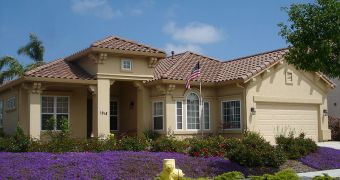Officials from the United Nations are concerned about the fact that the needs of 7 billion people will be reflected in bigger households, more cars and computers. The rise of consumption might imply risks which the population isn't aware of.
The development of poor countries will influence their future lifestyle, increasing the consumption of raw materials. It is only normal that people from India and Africa will want to live the American dream, as well, once they will be able to afford it.
Despite this fact, such an event would have negative consequences upon the environment and the limited amount of natural resources.
The only problem is that cheap energy can't respond to the growing demand of so many individuals, and therefore, American officials want to prove, throughout their own example, that it is possible to consume less while living smaller, without putting in danger the life quality.
A facility located Sacramento, California, which provides creative solutions to this problem. The team of experts who work here manage to finish a 1,500 square-foot home in just one day, unlike other companies which develop the interior piece by piece, in a time-consuming process.
The enterprise uses only green materials in their projects, and every feature is guaranteed to bring its contribution to preserving energy.
The main objective is to replace the traditional American households which are famous worldwide for wasting energy with a so-called "net zero" energy home.
In order to achieve this target, the company focuses its efforts on building sustainable walls which contain more insulation.
Every hole in the system will be properly fixed so that the manufacturers can show-off their realistic concept of green energy-efficient buildings.
If the new kind of household is placed in the most appropriate region for its development, the entire energy demand would be satisfied by alternative sources of energy, such as solar panels.
This company's business strategy could be easily applied to most of the big cities on the American continent.
Despite the fact that architects have the knowledge to implement change in our lifestyles, the main challenge seems to convince the public opinion that living small can be a great way of preserving energy, with no disturbing side-effects.
"The psychology of convincing someone is to provide very simple things, like enough storage.I like to provide a large sink, so that the person who's using it doesn't feel like they're lacking or living smaller and everything is miniaturized," affirmed Taeka Takagi, an architect from Zeta Communities factory.
It is important to follow this new path that leads to energy preservation, taking into account that households use nowadays up to 40%of the nation's entire power.
Experts say that it is as important as coming up with viable, sustainable alternative resources to power up our extravagant lifestyle.

 14 DAY TRIAL //
14 DAY TRIAL //